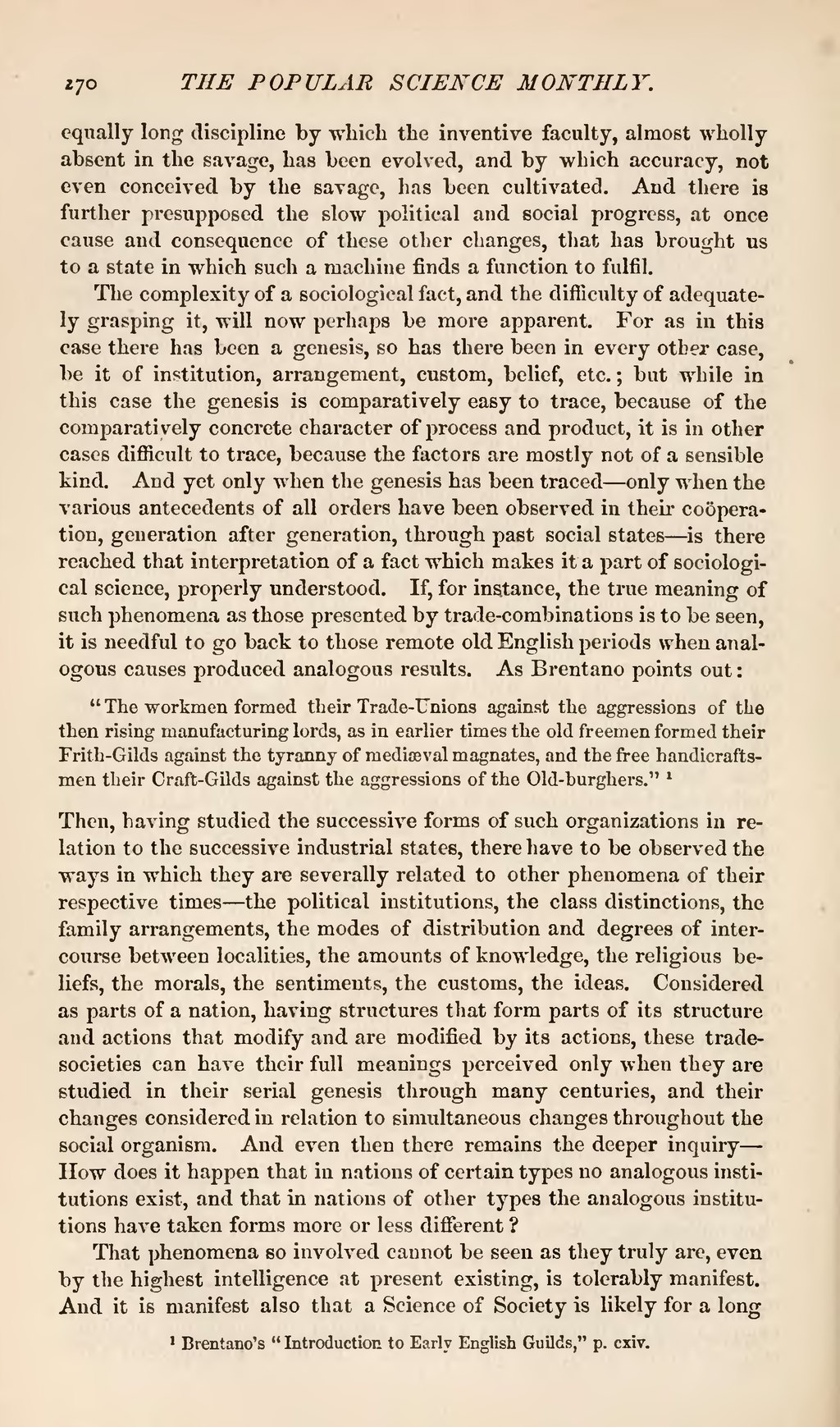equally long discipline by which the inventive faculty, almost wholly absent in the savage, has been evolved, and by which accuracy, not even conceived by the savage, has been cultivated. And there is further presupposed the slow political and social progress, at once cause and consequence of these other changes, that has brought us to a state in which such a machine finds a function to fulfil.
The complexity of a sociological fact, and the difficulty of adequately grasping it, will now perhaps be more apparent. For as in this case there has been a genesis, so has there been in every other case, be it of institution, arrangement, custom, belief, etc.; but while in this case the genesis is comparatively easy to trace, because of the comparatively concrete character of process and product, it is in other cases difficult to trace, because the factors are mostly not of a sensible kind. And yet only when the genesis has been traced—only when the various antecedents of all orders have been observed in their coöperation, generation after generation, through past social states—is there reached that interpretation of a fact which makes it a part of sociological science, properly understood. If, for instance, the true meaning of such phenomena as those presented by trade-combinations is to be seen, it is needful to go back to those remote old English periods when analogous causes produced analogous results. As Brentano points out:
"The workmen formed their Trade-Unions against the aggressions of the then rising manufacturing lords, as in earlier times the old freemen formed their Frith-Gilds against the tyranny of mediæval magnates, and the free handicrafts-men their Craft-Gilds against the aggressions of the Old-burghers."[1]
Then, having studied the successive forms of such organizations in relation to the successive industrial states, there have to be observed the ways in which they are severally related to other phenomena of their respective times—the political institutions, the class distinctions, the family arrangements, the modes of distribution and degrees of intercourse between localities, the amounts of knowledge, the religious beliefs, the morals, the sentiments, the customs, the ideas. Considered as parts of a nation, having structures that form parts of its structure and actions that modify and are modified by its actions, these trade-societies can have their full meanings perceived only when they are studied in their serial genesis through many centuries, and their changes considered in relation to simultaneous changes throughout the social organism. And even then there remains the deeper inquiry—How does it happen that in nations of certain types no analogous institutions exist, and that in nations of other types the analogous institutions have taken forms more or less different?
That phenomena so involved cannot be seen as they truly are, even by the highest intelligence at present existing, is tolerably manifest. And it is manifest also that a Science of Society is likely for a long
- ↑ Brentano's "Introduction to Early English Guilds," p. cxiv.
